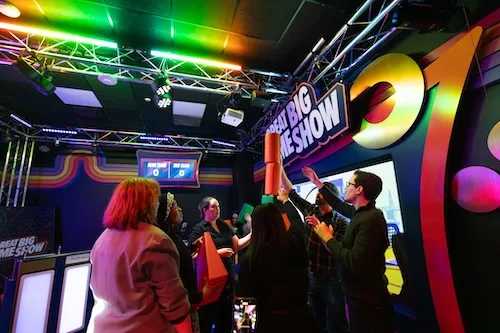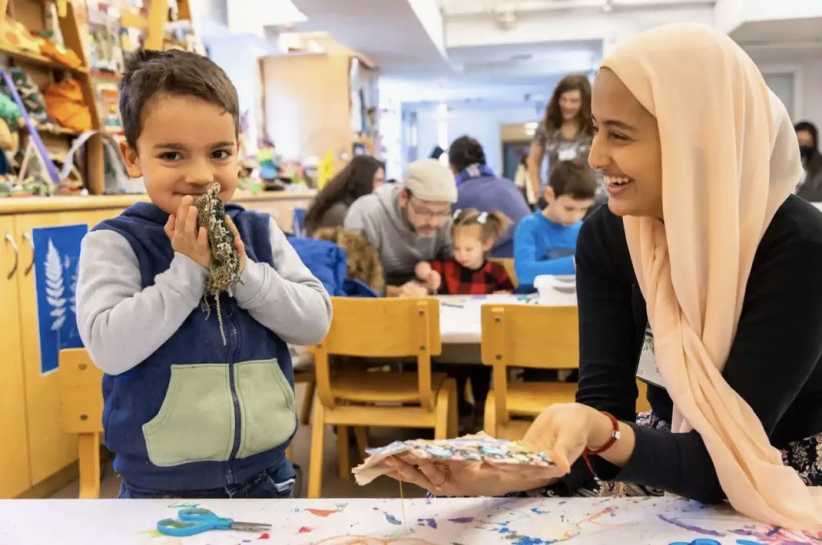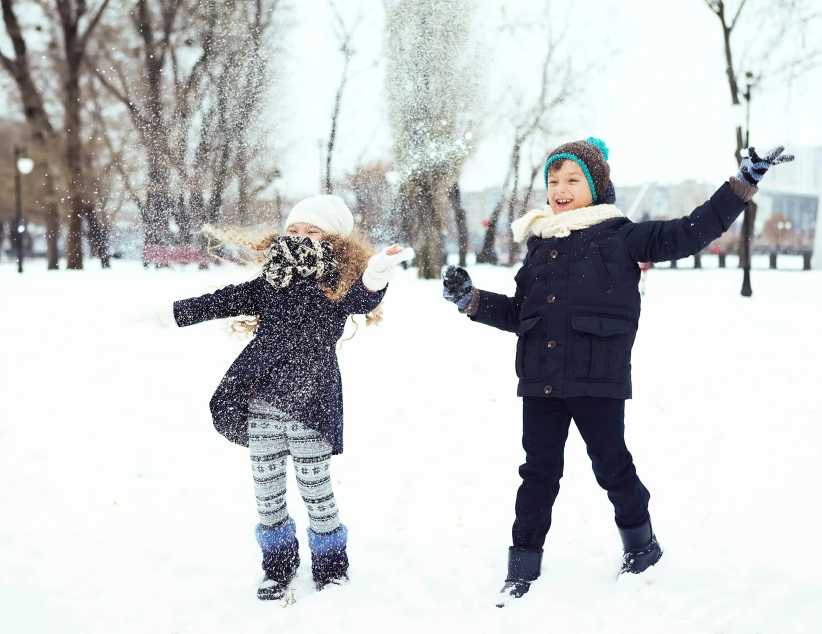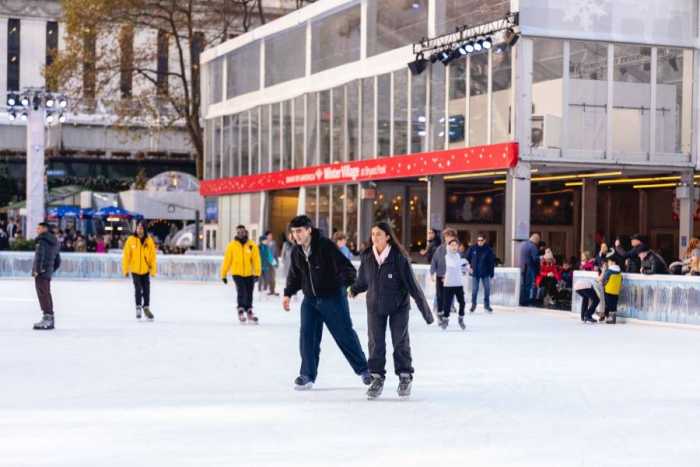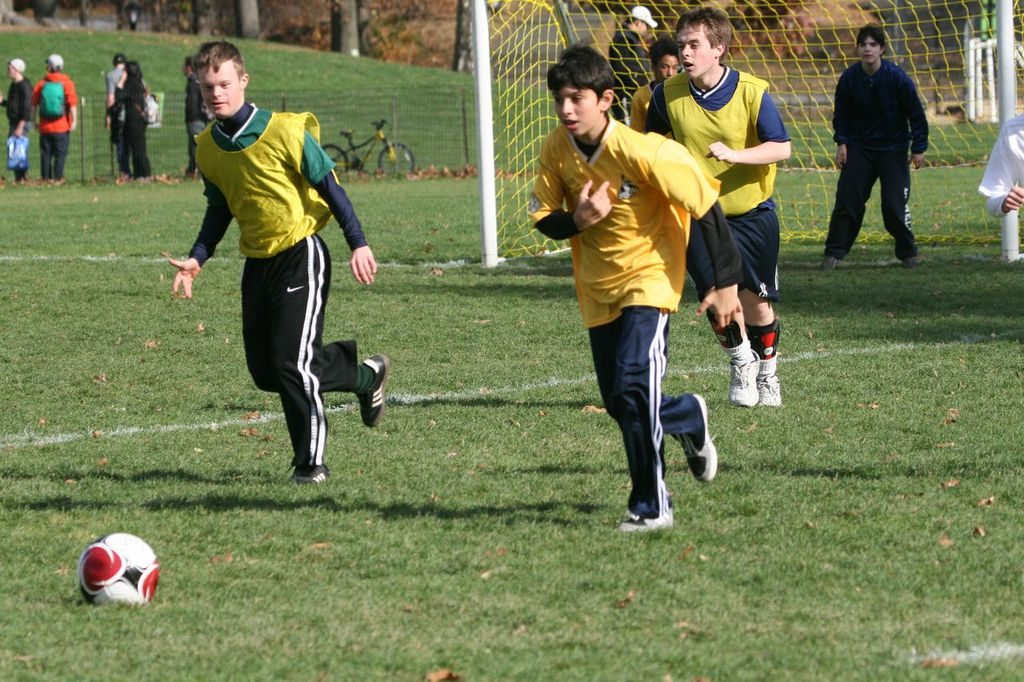
There are countless scores of people helping others daily with gestures big and small in this city. In the spirit of the season, we’re proud to present a small sampler of all the charitable organizations in NYC dedicated to bettering the lives of children and families in need. We hope these editor’s picks—and a roundup of additional notables—will jumpstart a call to philanthropy within your family.
Editors’ Pick: The Pajama Program
Drops in temperature don’t just mark the beginning of the holiday season; they’re also a warning sign for our community’s most vulnerable. During the “danger season,” from October to March, children living below the poverty line face severe health risks without proper care. Genevieve Piturro, founder of the Pajama Program, has been working since 2001 to help combat this problem. Her organization aims to provide for children new, warm pajamas—as well as books that they can call their own.
Why pajamas? When Piturro was in her late 30s, she decided to volunteer to read at an emergency shelter, where she saw children going to bed in their day clothes. “It just broke my heart, and I thought, they need pajamas, at least,” she says. So on her next visit, Piturro brought along PJs to give out, and one little girl asked her, “What are they?” And so the nonprofit was born, almost out of its own will. “Everything flashed in my mind and I didn’t know what to do except tell people about these kids, about their stories,” Piturro explains.
Today, the Pajama Program aims to help children who don’t have the security of comfortable, routine bedtimes. “We try to give them a hug this way…with clean, cozy pajamas and a book to ease their fears before they close their eyes,” Piturro says. With the help of corporate sponsors Scholastic, Sprout, and Carter’s, the Pajama Program is already responsible for the distribution of 2 million pairs of pajamas and books to children in need in 32 states. This past October, they launched a new initiative, 1 Million Good Nights, through which the nonprofit—along with its sponsors—vowed to collect a million books and a million pajamas to distribute by the end of 2015.
Though children need extra help during the colder months, providing bedtime comfort is a year-round necessity. There are many ways New York families can get involved with the Pajama Program, including donating, volunteering at reading centers, or hosting an event to raise money or supplies for the organization. – Anna Boisseau
Editors’ Pick: The West Side Soccer League
Giving back through sporty fun—what better way to get your kids interested in charity at a young age? Since 1987, the West Side Soccer League (WSSL) has been all-volunteer and part of the American Youth Soccer Organization. WSSL has more than 4,000 players ages 5-18, with teams for both boys and girls. But what really sets WSSL apart is that their VIP division, a network of teams for children of all ages, has a singular focus of including kids with physical and developmental challenges—including autism, Down syndrome, and Asperger’s syndrome—who want to play soccer but require extra attention and care.
Like all WSSL programs, the VIP division is coached by parents and volunteers—great for families looking to donate their time in hands-on ways. VIP seeks both team members and “buddies,” who are more experienced soccer players (generally age 10 and up), to work as peer coaches and helpers, making the program as enriching for volunteers (of all ages) as it is for participants.
“This program has always been a priority for us at West Side Soccer. These kids play on the premiere fields in Central Park, and we want them to feel very much a part of the league,” says Dana DiPrima, commissioner of WSSL since 2005.
The proof of the VIP division’s success truly lies in the resulting bonds between participants and their mentors, which comes across clearly to parents and coaches. “[Our son’s buddy] is absolutely awesome. If we could only clone that kid,” one parent writes. “He was so attentive and really engaged with our son, it was a perfect scenario. A child our son’s age that actually cared enough to really stand by him and genuinely wanted him to do well.”
“From being involved in this program, I don’t think anybody comes away unchanged, both the children and their parents,” adds DiPrima. “It’s a nexus of big-heartedness and commitment to community through soccer…this program is very unique.” – Emanuelle Block
Editor’s Pick: Getting Out and Staying Out
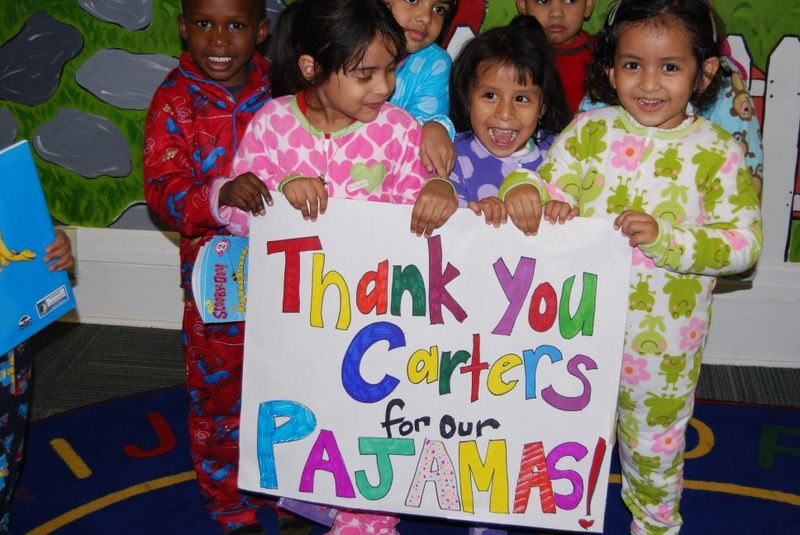
A big believer of second chances, Getting Out and Staying Out reaches out to young men while they’re either awaiting sentencing or serving time at Rikers Island. Its staff builds an attachment, so upon a young man’s release he can head to the GOSO offices immediately to choose “another way to go about living.” And the effects on participants are abundantly clear—the program has proven to drastically reduce the recidivism rate for justice involved men ages 16-24.
“We give young men hope that very good things can happen if they work hard,” says Paul Gutkowski LCSW, associate executive director of GOSO. And, with statistics that show 80 percent of GOSO participants succeeding in staying out of prison, it looks like Gutkowski’s faith in hope and hard work is right on point.
The roots of this remarkable reentry program—which is completely volunteer-based—date back to 2003, when a retired business executive named Mark L. Goldsmith was invited to Horizon Academy, one of two high schools operating at Rikers Island, as a volunteer principal for a day. His inspiring discussions with young inmates were overwhelmingly well-received, and he went on to develop a lasting partnership with the Departments of Education and Corrections, subsequently spearheading a formal mentoring program at the prison. Goldsmith continued to maintain connections with the men he’d mentored in prison once they were released. In 2005, he took his passions of giving young men a second life even further by securing private funding and helping to open GOSO in East Harlem.
Since then, GOSO has established itself as one of the most effective reentry programs in the New York City area by ensuring economic independence through purposeful education and directed employment. GOSO’s model promotes education and vocational training, provides job readiness classes and employment assistance, and offers counseling and social services.
“[The participants] all have a core belief that they’re not good enough to get there,” Gutkowski says. “But we believe every young man has an untapped strength.” – Lorraine Duffy Merkl
To read about our 10 favorite charities this season, click here.

